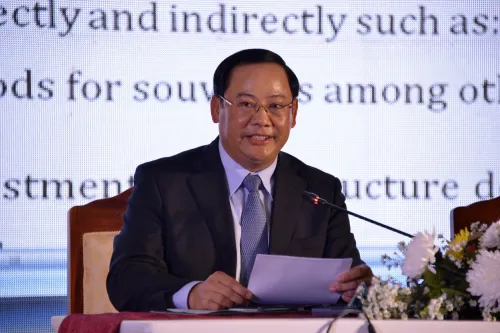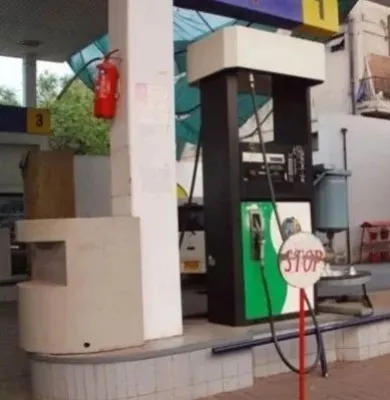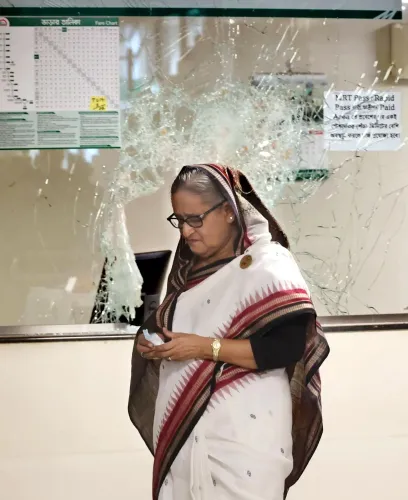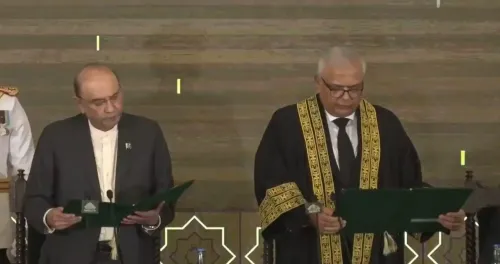Why is the Israeli envoy Reuven Azar Thankful for PM Modi's Support on the Gaza Peace Plan?

Synopsis
Key Takeaways
- Prime Minister Modi supports the US-led peace plan for Gaza.
- The peace plan emphasizes governance and rule of law.
- International backing includes Arab and Muslim countries.
- Education reforms are essential for de-radicalization.
- Hostage release is critical for Israel's security strategy.
New York, Sep 30 (NationPress) The Israeli Ambassador to India, Reuven Azar, expressed his appreciation on Tuesday for Prime Minister Narendra Modi’s endorsement of the US-led peace strategy designed to resolve the ongoing conflict in Gaza. He also called on additional nations to lend their support to this crucial initiative.
This announcement followed shortly after US President Donald Trump revealed his 20-point peace proposal at the White House, accompanied by Israeli Prime Minister Benjamin Netanyahu.
Speaking at a press conference in New Delhi, Azar described this moment as “historic”.
“What we witnessed yesterday in the White House was the unveiling of a comprehensive plan aimed at concluding the war in Gaza, as well as a vision for the future,” he remarked.
Earlier that day, Prime Minister Modi praised Trump’s proposal, characterizing it as a step towards regional stability.
In a post on X, he stated, “We welcome President Donald J. Trump's announcement of a comprehensive plan to end the Gaza conflict. It provides a viable pathway to long-term and sustainable peace, security and development for the Palestinian and Israeli people, as well as for the larger West Asian region.”
Azar pointed out that the plan is backed by a broad international coalition.
“It enjoys support from Arab nations that have commended President Trump for his proposal. It is backed by Muslim countries and has international endorsement. We are immensely grateful to Prime Minister Modi for his support of the plan,” he added.
“We aspire for more countries to join us,” he further emphasized.
When outlining the prerequisites for Palestinian self-governance under the proposed framework, Azar underscored the importance of governance and the rule of law.
He stated that requirements encompass a constitution or similar framework, a free press, fair elections, protections for human rights and religious freedom, and an independent judiciary that ensures due process.
Additionally, he stressed the necessity for financial institutions to be transparent, independent, and reliable, with anti-corruption policies, legal safeguards for investments and contracts, and the capacity to meet International Monetary Fund membership standards.
Azar also highlighted the significance of educational reforms, advocating for the elimination of incitement from educational materials and the halting of incentives for violence or criminal behavior.
He indicated that civilian and law enforcement control over all territories, complete demilitarization, and adherence to the peace vision are also vital conditions.
The Israeli envoy clarified that following the release of hostages, Israel would retreat to the yellow line until it has secured the designated security perimeter.
He emphasized the constructive roles of regional stakeholders, stating, “There is a solid Egyptian and Qatari stance and a broader Arab consensus regarding Hamas. There exists a possibility that Hamas could accept this now.”
Calling for de-radicalization in Gaza, Azar expressed optimism that economic collaboration could ensue.
“We aim for the de-radicalization of Gaza. I hope this is achievable. We can share Israel's economic successes with Palestine. We are looking forward to a timeline for Hamas to release hostages,” he mentioned, noting that the timeframe is set at 72 hours.









